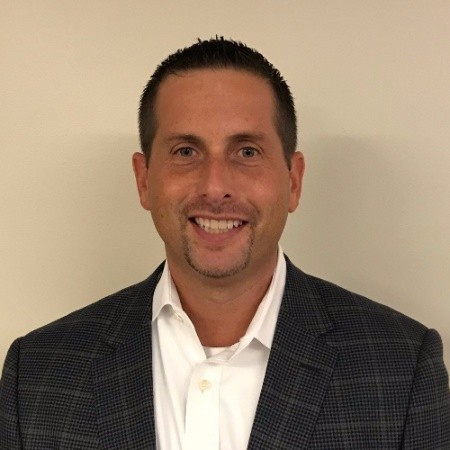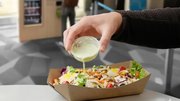Coffee Service
How to navigate the new office coffee service landscape
The new OCS landscape requires flexibility, communication and an openness to new customer needs, according to a panel of experts during a NAMA webinar.

June 29, 2020 by Elliot Maras — Editor, Kiosk Marketplace & Vending Times
The COVID-19 pandemic has delivered the OCS industry one of its greatest setbacks on account of location closures. But this hasn't stopped progressive operators from finding ways to meet customers' changing needs.
Last Thursday, more than 100 operators heard what some of their more progressive colleagues are doing to adapt to the "new normal." The webinar, titled "Navigating the new landscape of office coffee service," focused on the need for operators to be communicative and flexible in how they respond to the current challenge.
"We have a good opportunity to help consumers adjust because they're going through the same things we are right now," said panelist James Lowther, vice president of OCS and filtration service at DS Services, based in Lakeland, Florida. "The more we train and keep both our consumers and associates informed, I think the better off we're going to be and the more respected we'll be in the industry, and consumers will accept us a lot quicker, and it gives us a great opportunity to build a standard. If you build a standard for safety, we are the standard for execution."
Lowther was not the only panelist to highlight the importance of communication.
 |
| Michael Schwartz of Nestle Coffee Partners stressed the importance of communication, |
"Having that open, transparent conversation will help set expectations in the ways that can be supported in helping customers undo the mess that's been made," said Michael Schwartz, director of field sales and equipment, Nestlé Coffee Partners. "The closer we all stay to each other with these open conversations is going to help a lot with these logistical challenges."
New business opportunities
Panelists also cited the importance of being aware of new business opportunities emerging.
Lowther said the pandemic will open doors to OCS operators for providing residential delivery services. "Who would have thought you could call HEB or your local food supplier and have it delivered to your house a year ago?" he said. "We've got to lead for our customers."
"That's a new opportunity for us," agreed Ben Brunson, president of Capitol Coffee Systems, Raleigh-Durham, North Carolina. He said he will be looking at working with employers to reach their work-from-home employees.
 |
| Ben Brunson of Capitol Coffee Systems sees a future in home delivery. |
"Everything's shaken up. Let's give the people what they want," said moderator Ben White, NAMA director of education and training. "Think out and up in terms of opportunities. We're in the last mile distribution business. The products on the truck can be many things. We are last mile distribution experts. We can get to places."
Three months ago, people wanted sustainability, which includes reusable items, White said. Now the demand for reusables has changed due to the coronavirus.
White also noted that as some businesses have fallen by the wayside, others have expanded rapidly on account of the coronavirus. He cited a neighbor whose catering business fell apart until the National Guard placed an order for four months of food.
What do customers want?
The types of products customers want has also changed.
Schwartz said the "new normal" will include providing items such as Q-tips to allow customers to clean surfaces. "An eraser from a pencil can help activate an elevator button," he said, offering another possible example of the new normal.
 |
| Chris Hurst of DS Services thinks customers will continue to want OCS for their employees. |
The interest in touchless equipment as a tool to improve sanitation was also discussed. Chris Hurst, DS Services senior marketing manager, said he predicts a bigger preference for single-serve brewers.
One DS Services equipment supplier surveyed office decision makers about equipment and found that 95% of the decision makers felt that single-serve, prepackaged solutions are safe.
The survey also found that most decision makers believe having a coffee service for employees is important. "If you can keep your employees on site, it's good for productivity," Hurst said. "I think there is added value across the board in continuing to have office coffee solutions and also being willing to adapt to the customer needs."
Hurst said he will be interested to see what the shift to single-serve becomes in the short term as well as the long term.
He also expects to see a shift to more, smaller coffee stations in the workplace. Offices that had two coffee stations in the past may want to bump it up to five stations so there will be fewer people congregating in one place.
Scrutinize your product mix
Meanwhile, operators are finding the need to adjust their product mix as locations have been ordering less.
Capitol Coffee Systems has reduced SKUs in some product categories, such as potato chips. "If you do that across your entire product selection it really improves the efficiency and allows us to get back to normal," said Brunson.
White agreed, noting that some restaurants have fewer menu items for the same reason. "People have gone back to basics; shrinking an SKU base is an acceptable in terms of customer acceptance," he said.
Recovery varies
As locations have started to reopen, the rate of recovery varies by region. Brunson, whose company serves both North and South Carolina, said recovery has been stronger in South Carolina since it has approached the pandemic differently.
Where business fell to about 20% of the norm in mid-February, South Carolina, which closed the economy later and began to reopen sooner than North Carolina, is trending back to 50% of normal volume, Brunson said. Sales in North Carolina are still below 30% of norm.
North Carolina was scheduled on Friday to begin a second phase of reopening by allowing gyms and restaurants to expand from 50% occupancy to 75%, but the state has delayed this phase by three weeks, he said. School openings have been delayed from Aug. 1 to Sept. 1.
Capitol Coffee Systems has been following CDC recommendations, posting equipment manufacturer cleaning recommendations, providing sanitizer and requiring employees to wear hats, Brunson said.
The company has reduced its staff to 25% of the norm.
"We're just kind of in a holding pattern," Brunson said.
Nevertheless, the panelists agreed that the OCS business will come back.
For an update on how the coronavirus is affecting convenience services, click here.
About Elliot Maras
Elliot Maras is the editor of Kiosk Marketplace and Vending Times. He brings three decades covering unattended retail and commercial foodservice.







